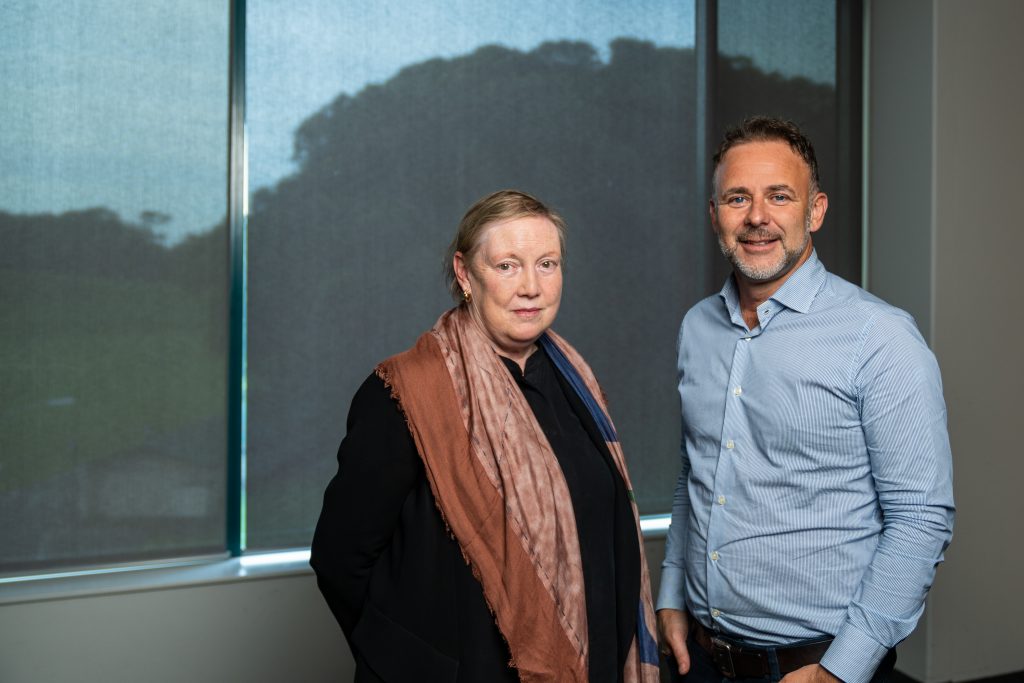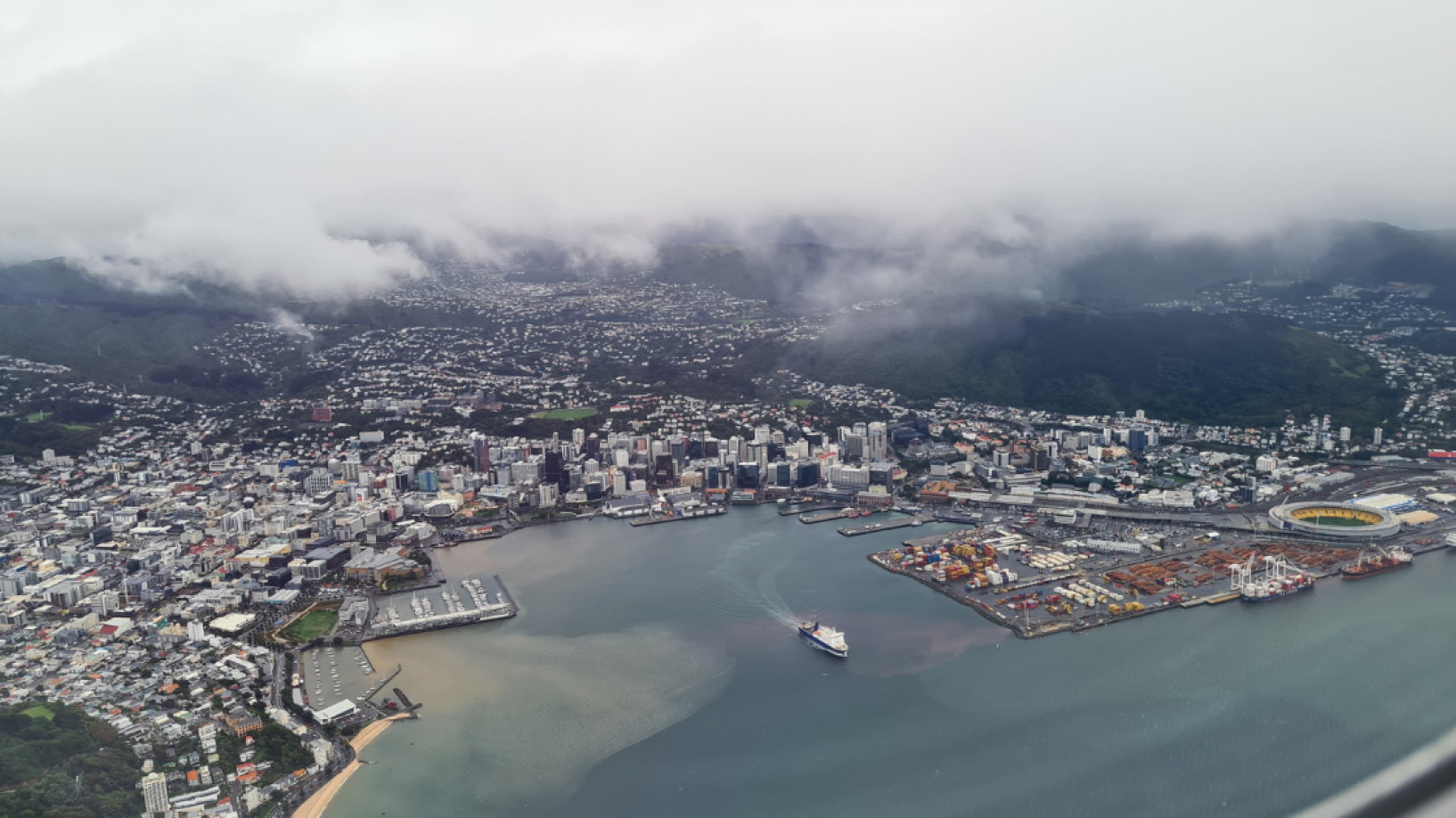From the CEO
Travelling internationally provides an opportunity to gain knowledge and insights through engaging with people who are navigating the energy system transition in their own country, and always deepens my perspective on Australia’s energy transition.
This past week I have been in Aotearoa New Zealand, my first international trip since 2019.
My main reason for being here was to exchange ideas with the Consumer Advocacy Council, our counterpart in Aotearoa. Despite only having been established in 2020, as an independent Ministerial Advisory Committee with a small Secretariat, they are already making a difference in bringing the experience of households and small businesses into reform, policy, and regulatory processes.
The Consumer Advocacy Council now joins Energy Consumers Australia and Ofgem in the United Kingdom in regularly undertaking surveys and reporting on what consumers what consumers are thinking, saying, and doing in their electricity (and gas) markets.
Most of you will be familiar with the metrics that we regularly report from our Energy Consumer Sentiment Survey, which we started in 2016. We are currently in the field with our next survey, which takes place not long after households and small businesses were informed about the significant increases in default offers from 1 July 2023 – ranging from 20% to 30%.
In our last survey, which we reported on in December 2022, when there had already been double digit price increases in many jurisdictions in the previous 6 months, the results for value for money of electricity and trust had fallen significantly. With prices again on the rise, households and small businesses consistently report that their first concern is affordability. In December 2022, 49% report that affordability is their number one concern and an overwhelming majority are concerned that energy will become unaffordable for them (52%) or for others (73%).
In the United Kingdom, the Office of Gas and Electricity Markets (Ofgem) has undertaken a tracking survey, Consumer Impacts of Market Conditions, in March and July 2022. This follows their earlier Consumer Perceptions surveys that they undertook with Citizens Advice throughout 2021 and 2022. Affordability is seen as the biggest worry for energy supply. Consumers are more worried about their energy supply being affected because they can’t afford it (41%) than they are because of supplier issues (e.g. 31% are worried they might be cut off due to supplier failure).
In Aotearoa, the Consumer Advocacy Council recently reported the findings of their first survey that was undertaken over two weeks in November and December 2022. The New Zealand Small Consumer Sentiment Survey 2022 found that small electricity consumers rank affordable electricity and a resilient network as their most important concerns.
When thinking about affordability:
- 80% of residential consumers and 86% of small businesses believe electricity needs to be affordable for all New Zealanders;
- 69% of residential consumers and 57% of small businesses are concerned electricity will become unaffordable for some over the next 10 years; and
- 52% of residents and 39% of small businesses worry electricity will be unaffordable for them over the next 10 years.
With regards to resilience:
- 74% of residents and 84% of small businesses say ensuring the electricity system is resilient to extreme weather events is important; and
- 57% of residents and 59% of small businesses are concerned the system will not be resilient to power outages caused by storm events over the next 10 years.
It is clear that consumers in Aotearoa, as they do in Australia, value both affordability and quality (resilience and reliability). The traditional view of economic regulators about assessing the trade-off between price and quality in an electricity system that is in a steady state, makes no sense to consumers whose experience of the energy transition is steeply rising prices and falling reliability.
The topics of hardship, affordability ,and resilience were all canvassed at a consumer roundtable, convened by the Consumer Advocacy Council where I was a guest, and in meetings with the Commerce Commission and Electricity Authority that I attended with Deborah Hart, Chair of the Consumer Advocacy Council and Emma Sturmfels from the Secretariat.
The conversation at the roundtable – attended by representatives from the Citizens Advice Bureau, Community Law, Consumer NZ and FinCap (represented by our colleague Jake Lilley formerly at Consumer Action Law Centre in Australia) – shared experiences in both countries with the inadequacy of policies to address hardship both in inability to pay and losing supply, whether that’s through pre-payment arrangements or disconnections. The extent to which poor quality housing is a root cause of unaffordable energy bills was also recognised. Mandatory rules to make disconnection a last resort, support for trusted and independent advice and the poor outcomes for pre-payment customers have all been included in the 5 key focus areas of the Energy Hardship Expert Panel in their Discussion Paper which is out for consultation until 28 April 2023.
Consumer protections is one of the focus areas of the Energy Hardship Expert Panel, and in particular the Electricity Authority’s Consumer Care Guidelines that were introduced from 1 July 2021 in response to a recommendation of the Electricity Price Review. Their effectiveness was discussed at the roundtable and in the meeting with the Electricity Authority, given that the guidelines are voluntary and compliance is monitored by the Electricity Authority through a self-reporting model. Consumer NZ, Consumer Advocacy Council and the Energy Hardship Expert Panel are all calling for these guidelines to be mandatory and compliance enforced. We offered to share lessons in Australia, including insights into the needs of small business as well as households for universal and better standards of customer service.
I also had the opportunity to meet with two of the electricity (and gas) distribution companies that serve customers on the North Island to learn more about their community engagement and the challenges facing them, particularly in building greater resilience in the face of climate change and extreme weather events. I greatly appreciated the time I spent with Stuart Dickson, General Manager Customer at Powerco and Simon Mackenzie CEO at Vector, and his Executive Team. Mark Toner (Chief Public Policy and Regulatory Officer, Vector) and I were able to also take time to record a conversation about the energy transformation and challenges.
In these meetings I shared my observation that consumers in Australia are facing rising prices, and more outages due to extreme weather, so the traditional relationship of sacrificing reliability to constrain price increases no longer holds. Australian consumers are telling us in our research that they expect that the energy transformation built on renewable generation to deliver the reliability they expect, at prices they can afford.

Lynne Gallagher, ECA and Mark Toner, Vector.
What struck me in the conversations about resilience is how the recent experience in New Zealand of severe weather events that severely damaged the electricity distribution infrastructure and communities, is currently focussing on regulation of trees (vegetation) management and additional network expenditure. While the immediacy of the effects of the cyclone makes this focus on infrastructure understandable, there is a broader framing that also needs to be explored which is how homes, businesses and communities can be more adaptable and resilient in the face of climate change, with more weather extremes and severe events. Prevention of outages may not be achievable at an affordable cost, so the ability of the community to remain socially connected, sustain reliable and accessible essential infrastructure to foster community recovery, and adapt and transform its surroundings in ways that enhance their capabilities in the face of future events has to be given equal policy focus.
That is why our collaboration grant “(Em)powering communities on their journey to energy resilience” with UTS Institute for Sustainable Futures is exploring, through deep community engagement across Australia, current best practices, challenges, and lessons learned around community energy resilience. A guidebook addressing energy resilience from a practical perspective will be developed, encouraging communities to discuss and consider what energy resilience means for them, why it matters, and which steps can be taken to improve community energy resilience. This will assist communities in articulating their needs and expectations on resilience with electricity distribution networks and other critical infrastructure providers, creating a shared language that will help ensure consumer and, more broadly, community perspectives are central to discussions and investment plans about energy resilience.
In the short time I have been here, I have been impressed with how the Consumer Advocacy Council is effectively using evidence and speaking up for the interests of households and small businesses to get the quality of electricity service they need and can afford. As part of their mission, they are working with other public interest groups who are already stretched in addressing consumer issues across the board, and not just electricity and gas market outcomes.
Energy Consumers Australia is fortunate in that we are “built in” to the governance arrangements in Australia in ways that support our independence and resourcing, to be the national voice for households and small businesses in the energy system and to support advocacy and research. At this stage, the Consumer Advocacy Council operates as a Ministerial Advisory Committee. We hope that at some not too distant point the future of the Consumer Advocacy Council can be secured in a similar way, for the benefit of small customers and the other advocacy organisations that are working on their behalf.
Lynne Gallagher
Chief Executive Officer

